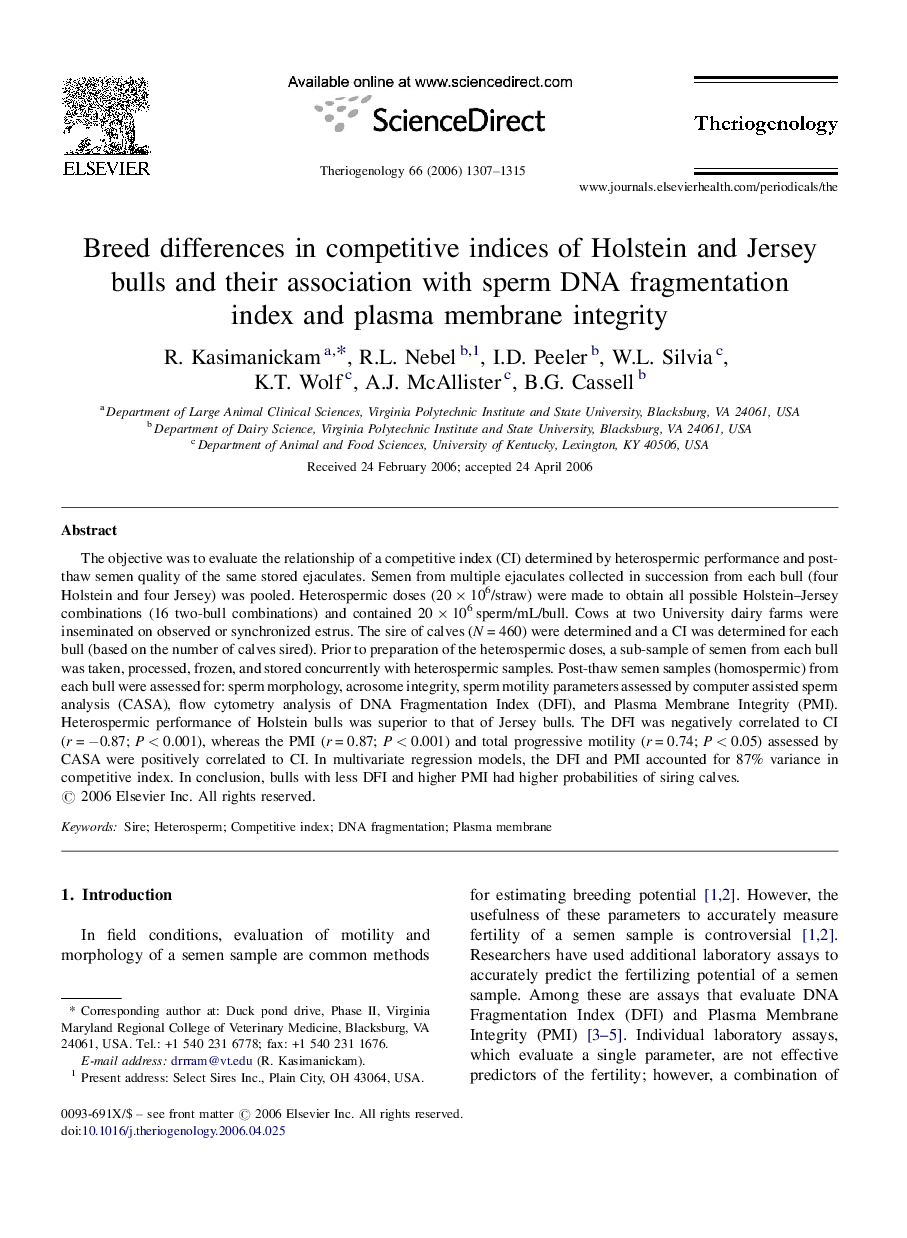| Article ID | Journal | Published Year | Pages | File Type |
|---|---|---|---|---|
| 2096920 | Theriogenology | 2006 | 9 Pages |
The objective was to evaluate the relationship of a competitive index (CI) determined by heterospermic performance and post-thaw semen quality of the same stored ejaculates. Semen from multiple ejaculates collected in succession from each bull (four Holstein and four Jersey) was pooled. Heterospermic doses (20 × 106/straw) were made to obtain all possible Holstein–Jersey combinations (16 two-bull combinations) and contained 20 × 106 sperm/mL/bull. Cows at two University dairy farms were inseminated on observed or synchronized estrus. The sire of calves (N = 460) were determined and a CI was determined for each bull (based on the number of calves sired). Prior to preparation of the heterospermic doses, a sub-sample of semen from each bull was taken, processed, frozen, and stored concurrently with heterospermic samples. Post-thaw semen samples (homospermic) from each bull were assessed for: sperm morphology, acrosome integrity, sperm motility parameters assessed by computer assisted sperm analysis (CASA), flow cytometry analysis of DNA Fragmentation Index (DFI), and Plasma Membrane Integrity (PMI). Heterospermic performance of Holstein bulls was superior to that of Jersey bulls. The DFI was negatively correlated to CI (r = −0.87; P < 0.001), whereas the PMI (r = 0.87; P < 0.001) and total progressive motility (r = 0.74; P < 0.05) assessed by CASA were positively correlated to CI. In multivariate regression models, the DFI and PMI accounted for 87% variance in competitive index. In conclusion, bulls with less DFI and higher PMI had higher probabilities of siring calves.
